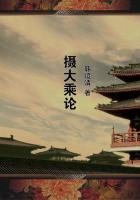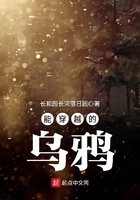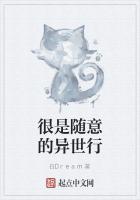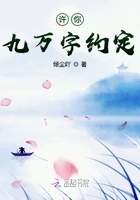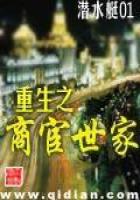"I am very fond of jam, Ilya Makaritch," said Lipa. "I sit down in my little corner and drink tea and eat jam. Or I drink it with Varvara Nikolaevna, and she tells some story full of feeling. We have a lot of jam -- four jars. 'Have some, Lipa; eat as much as you like.' " "A-a-a, four jars!""They live very well. We have white bread with our tea; and meat, too,as much as one wants. They live very well, only I am frightened with them, Ilya Makaritch. Oh, oh, how frightened I am!""Why are you frightened, child?" asked Crutch, and he looked back to see how far Praskovya was behind.
"To begin with, when the wedding had been celebrated I was afraid of Anisim Grigoritch. Anisim Grigoritch did nothing, he didn't ill-treat me, only when he comes near me a cold shiver runs all over me, through all my bones. And I did not sleep one night, I trembled all over and kept praying to God. And now I am afraid of Aksinya, Ilya Makaritch. It's not that she does anything, she is always laughing, but sometimes she glances at the window, and her eyes are so fierce and there is a gleam of green in them -- like the eyes of the sheep in the shed. The Hrymin Juniors are leading her astray: 'Your old man,' they tell her, 'has a bit of land at Butyokino, a hundred and twenty acres,' they say, 'and there is sand and water there, so you, Aksinya,' they say, 'build a brickyard there and we will go shares in it.' Bricks now are twenty roubles the thousand, it's a profitable business. Yesterday at dinner Aksinya said to my father-in-law: 'I want to build a brickyard at Butyokino; I'm going into business on my own account.' She laughed as she said it. And Grigory Petrovitch's face darkened, one could see he did not like it. 'As long as I live,' he said, 'the family must not break up, we must go on altogether.' She gave a look and gritted her teeth. . . . Fritters were served, she would not eat them.""A-a-a! . . ." Crutch was surprised.
"And tell me, if you please, when does she sleep?" said Lipa. "She sleeps for half an hour, then jumps up and keeps walking and walking about to see whether the peasants have not set fire to something, have not stolen something. . . . I am frightened with her, Ilya Makaritch. And the Hrymin Juniors did not go to bed after the wedding, but drove to the town to go to law with each other; and folks do say it is all on account of Aksinya. Two of the brothers have promised to build her a brickyard, but the third is offended, and the factory has been at a standstill for a month, and my uncle Prohor is without work and goes about from house to house getting crusts. 'Hadn't you better go working on the land or sawing up wood, meanwhile, uncle?' I tell him; 'why disgrace yourself?' 'I've got outof the way of it,' he says; 'I don't know how to do any sort of peasant's work now, Lipinka.' . . ."They stopped to rest and wait for Praskovya near a copse of young aspen-trees. Elizarov had long been a contractor in a small way, but he kept no horses, going on foot all over the district with nothing but a little bag in which there was bread and onions, and stalking along with big strides, swinging his arms. And it was difficult to walk with him.
At the entrance to the copse stood a milestone. Elizarov touched it; read it. Praskovya reached them out of breath. Her wrinkled and always scared-looking face was beaming with happiness; she had been at church to-day like anyone else, then she had been to the fair and there had drunk pear cider. For her this was unusual, and it even seemed to her now that she had lived for her own pleasure that day for the first time in her life. After resting they all three walked on side by side. The sun had already set, and its beams filtered through the copse, casting a light on the trunks of the trees. There was a faint sound of voices ahead. The Ukleevo girls had long before pushed on ahead but had lingered in the copse, probably gathering mushrooms.
"Hey, wenches!" cried Elizarov. "Hey, my beauties!" There was a sound of laughter in response.
"Crutch is coming! Crutch! The old horseradish."And the echo laughed, too. And then the copse was left behind. The tops of the factory chimneys came into view. The cross on the belfry glittered: this was the village: "the one at which the deacon ate all the caviare at the funeral." Now they were almost home; they only had to go down into the big ravine. Lipa and Praskovya, who had been walking barefooted, sat down on the grass to put on their boots; Elizar sat down with them. If they looked down from above Ukleevo looked beautiful and peaceful with its willow-trees, its white church, and its little river, and the only blot on the picture was the roof of the factories, painted for the sake of cheapness a gloomy ashen grey. On the slope on the further side they could see the rye -- some in stacks and sheaves here and there as though strewn about by the storm, and some freshly cut lying in swathes; the oats, too, were ripe and glistened now in the sun like mother-of-pearl. It washarvest-time. To-day was a holiday, to-morrow they would harvest the rye and carry the hay, and then Sunday a holiday again; every day there were mutterings of distant thunder. It was misty and looked like rain, and, gazing now at the fields, everyone thought, God grant we get the harvest in in time; and everyone felt gay and joyful and anxious at heart.



